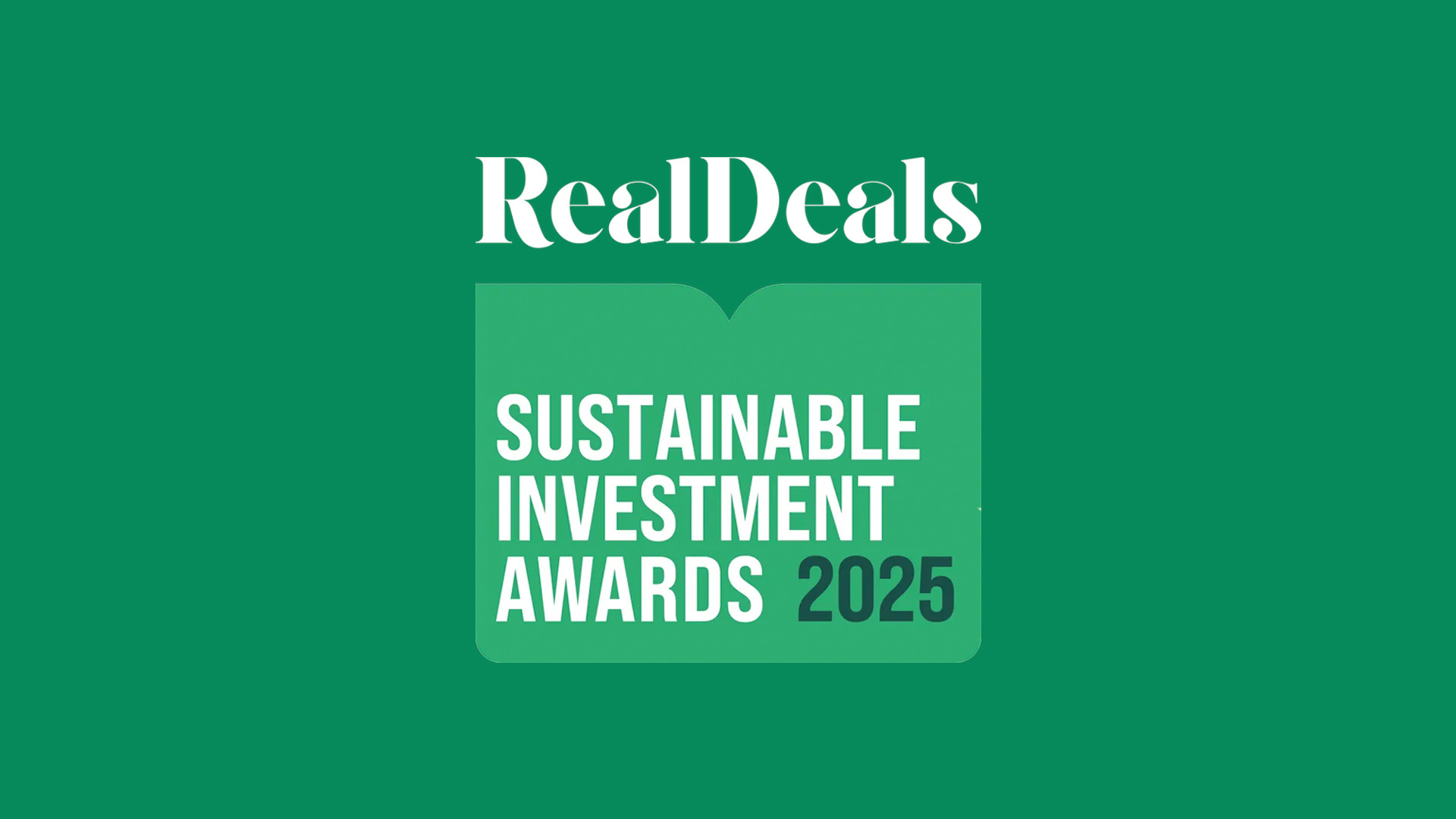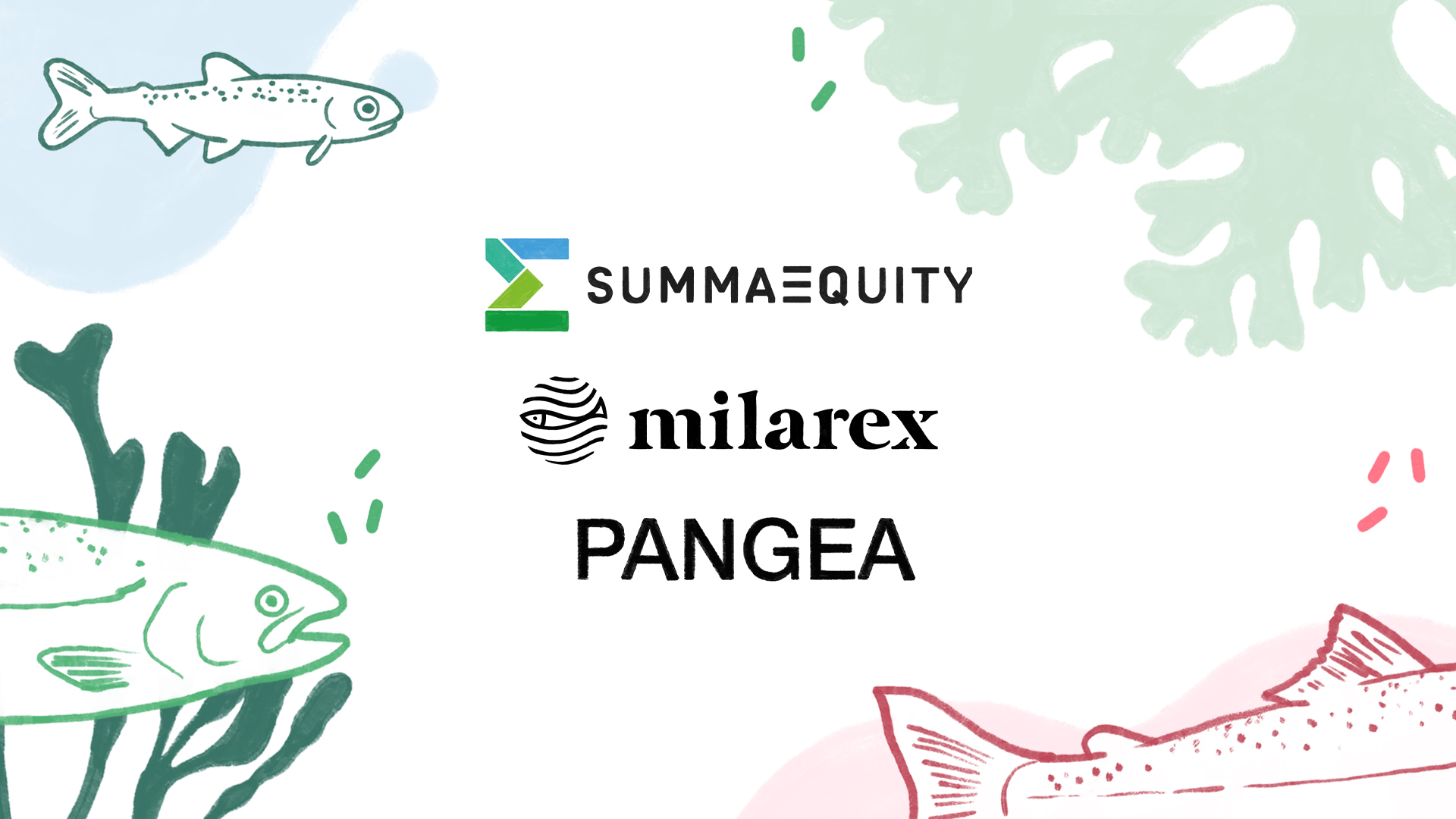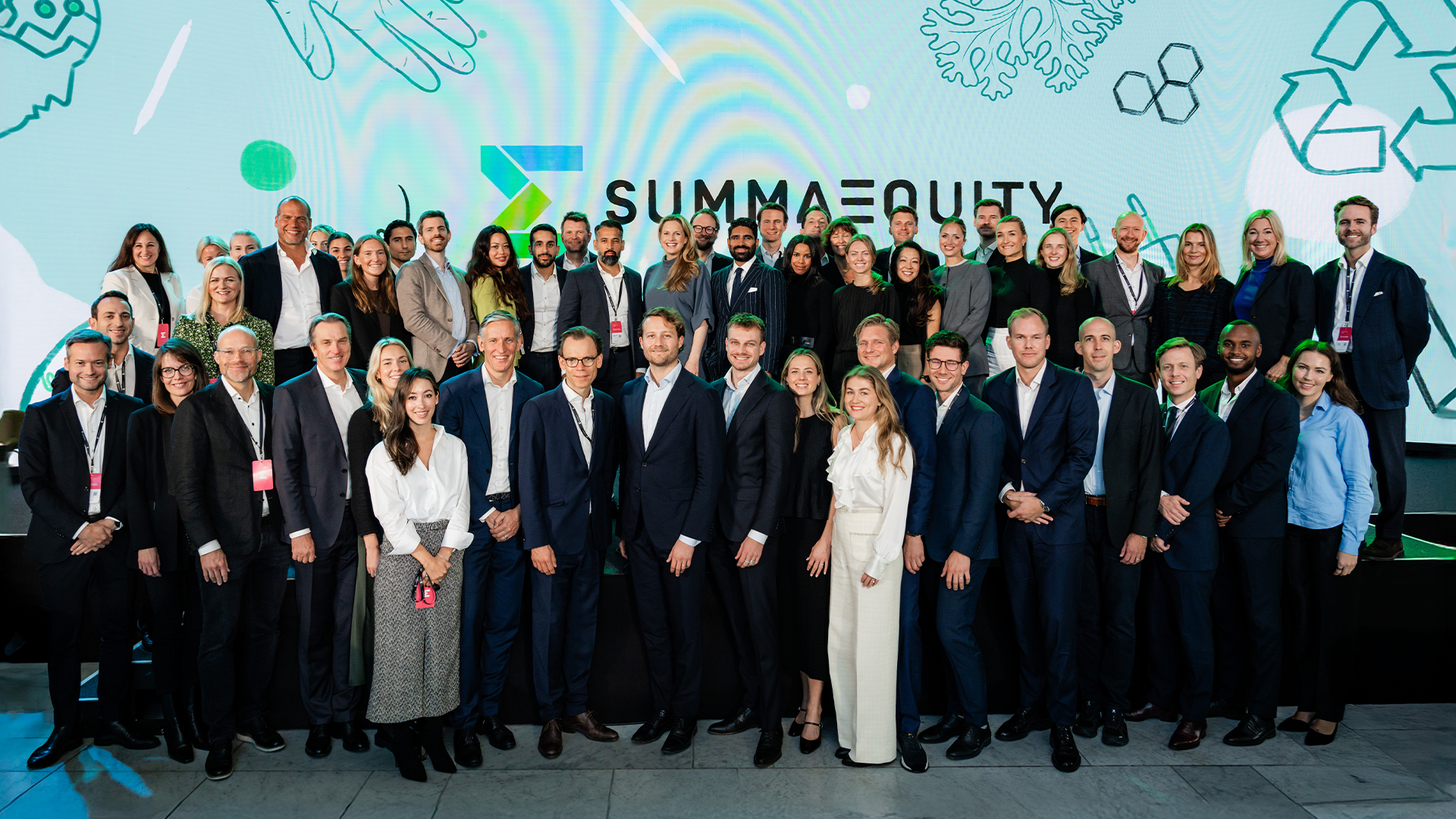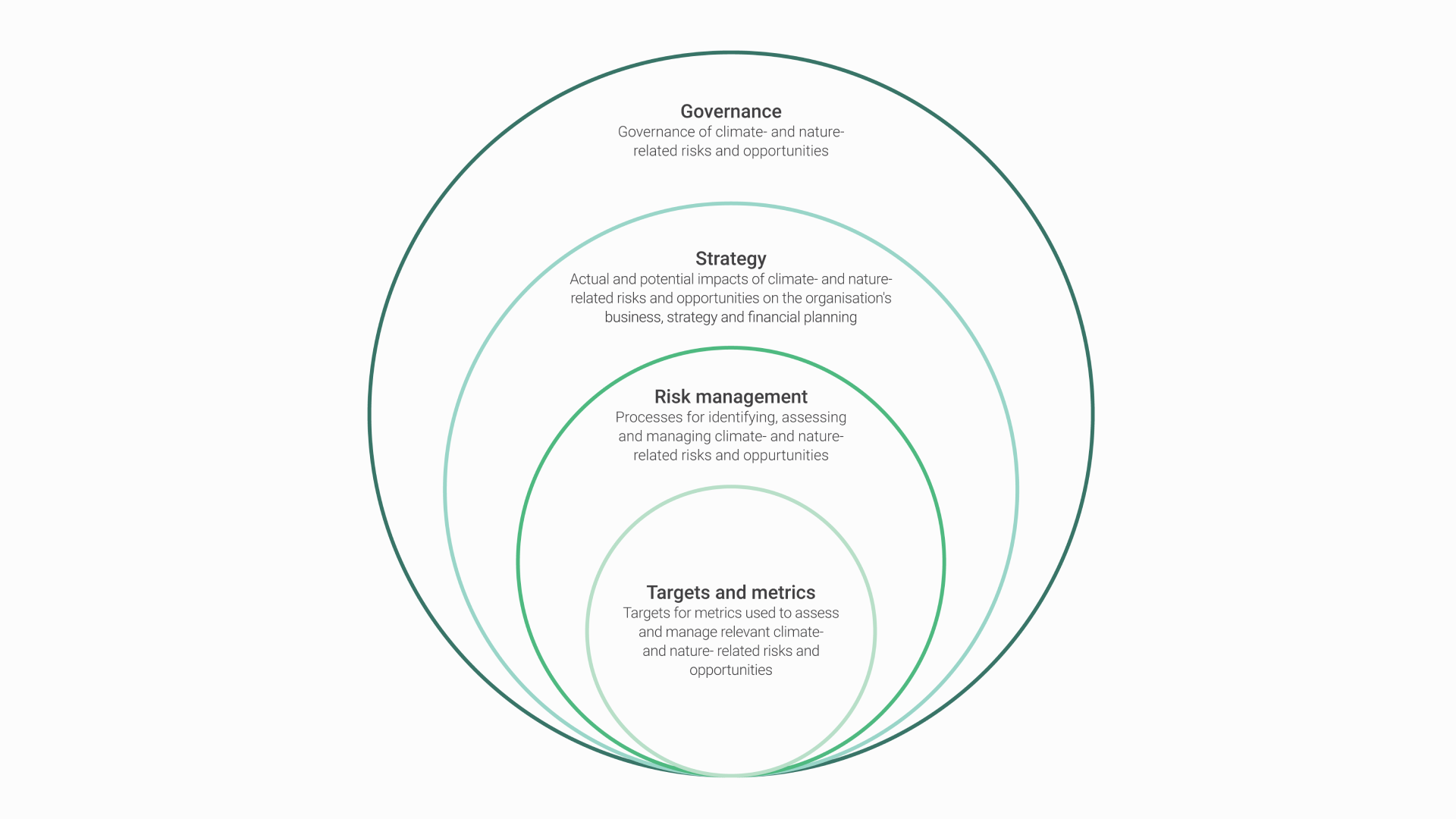Report on climate and nature 2023
We are facing an existential environmental crisis. Climate change, depletion of natural resources, and biodiversity loss are all major issues that need to be addressed.
- News
- Impact
- Reports
4 min read

A forceful response is necessary, which will require a paradigm shift in human activity to mitigate and adapt to the impacts of these issues. It is vital that immediate action is taken to address these issues, as the longer we wait, the more difficult and costly it will be to solve them.
Summa Equity (“Summa”) has chosen to align with the frameworks Task Force on Climate-related Financial Disclosures (“TCFD”) and Taskforce on Nature-related Financial Disclosures (“TNFD”) to support the work of identifying and managing climate and nature-related risks and opportunities.
TCFD and TNFD framework
-
Governance
A. Board of Directors
B. Management
C. Human rights -
Strategy
A. Identified impacts, dependencies, risks and opportunities
B. Effects on Summa’s investment strategies
C. Scenario analysis
D. Geographical presence -
Risk management
A. Identification of impacts, dependencies, risks and opportunities
B. Management of impacts, dependencies, risks and opportunities
C. Integration of climate- and nature-related risks into risk management -
Target and metrics
A. Metrics for assessing risks and opportunities
B. TCFD: Reporting concerning greenhouse gases. TNFD: Metrics of nature-related impacts and dependencies
C. Targets
Governance
Summa’s management of climate and nature-related dependencies, impacts, risks, and opportunities
Summa is a purpose-driven, thematic investment firm that invests in and develops companies that provide new and innovative solutions for a more future-proof world. Summa is owned by its partners and the Summa Foundation.
Governance of our commitments and actions on climate and nature sits at the highest level of Summa – the Summa Board. The CEO has the overall responsibility for the operational work on climate change, depletion of natural resources, and biodiversity for Summa, but the strategic work is developed together with the thematic partners, the management team, and the impact director.
Strategy
The effects of climate- and nature-related dependencies, impacts, risks and opportunities on Summa’s business model and strategy
Summa was founded in 2016 with the aim of investing to solve global challenges. This means that Summa does not only manage the risks related to climate and nature, but also actively invests in companies that contribute to solving challenges related to climate and nature through their products and/or services. We fundamentally believe that this approach does not only futureproof the portfolio in terms of sustainability, we believe that it is also a prerequisite for good long-term financial returns. Summa integrates sustainability considerations, including climate and nature impacts throughout screening, analysis, due diligence, and the path to value creation.
Summa does not invest in certain sectors that are considered high-risk from a climate and nature perspective, e.g. fossil fuels, and mining.
Through active dialogue and collaboration, Summa also works to influence positive change within its portfolio, fostering a culture of sustainability and resilience, e.g. through impact roundtables where we invite representatives from the portfolio companies to discuss sustainability-related topics, including climate and nature.
In addition to risk mitigation, Summa seeks to capitalize on emerging opportunities arising from the transition to an economy within planetary boundaries. By investing in innovative solutions and technologies that address climate and nature-related challenges, Summa aims to generate positive environmental impact while delivering attractive returns for its investors.
Risk management
Identification, management, and integration in Summa’s overall risk management of climate and nature-related dependencies, impacts, risks, and opportunities
Summa has established processes to identify, assess, prioritize, and manage climate and nature-related risks throughout the investment process.
Climate and nature-related risks are systematically identified, assessed, and managed across the organization’s operations and investment portfolios. Summa integrates climate and nature-related risks into its overall risk management system and key risk indicators (“KRI”) reporting process. By incorporating climate and nature considerations into its risk management framework, Summa strives to mitigate potential adverse impacts on financial performance, operations, and stakeholder trust.
Metrics & targets
Metrics and targets used to assess and manage climate- and nature-related impacts, dependencies, risks and opportunities
Given the size of the companies Summa invests in, there are certain limitations to the data available on climate and nature, especially regarding supply chains. During our ownership, we support portfolio companies to become more mature on all climate and nature-related aspects, including identification, prioritization, management, and reporting.
All portfolio companies are required to report their GHG emissions and other sustainability-related information on an annual basis. The reported data is used to measure nature impacts based on Life Cycle Assessment (“LCAs”) in line with the European Commission’s Environmental Footprint (“EF”) method and use sector-based data through the ENCORE tool for a top-down assessment of the portfolio.
Summa has set Science-Based Targets (“SBTs”) for climate, including a commitment to align portfolio companies’ emissions reductions initiatives with the Science-Based Targets Initiative, ensuring that our investments contribute to global decarbonization efforts. Summa is still evaluating concrete nature-related targets, but the overall objective is to contribute to a positive development where nature, including biodiversity, ecosystems, and natural capital, is protected and thrives.
The Summa Summarum newsletter
Sign up to our newsletter
Latest readings
News
Holdbart and Summa Foundation donate NOK 2 million to support food access in Norway
Read more
Securing the backbone of the digital economy: strengthening cybersecurity for SMEs
Read more
Summa Equity wins double honors at Real Deals Sustainable Investment Awards 2025
Read more
Summa Equity exits Milarex
Read more
Reflections from the Summa Summit and our 9th Annual Investor Meeting 2025
Read more
